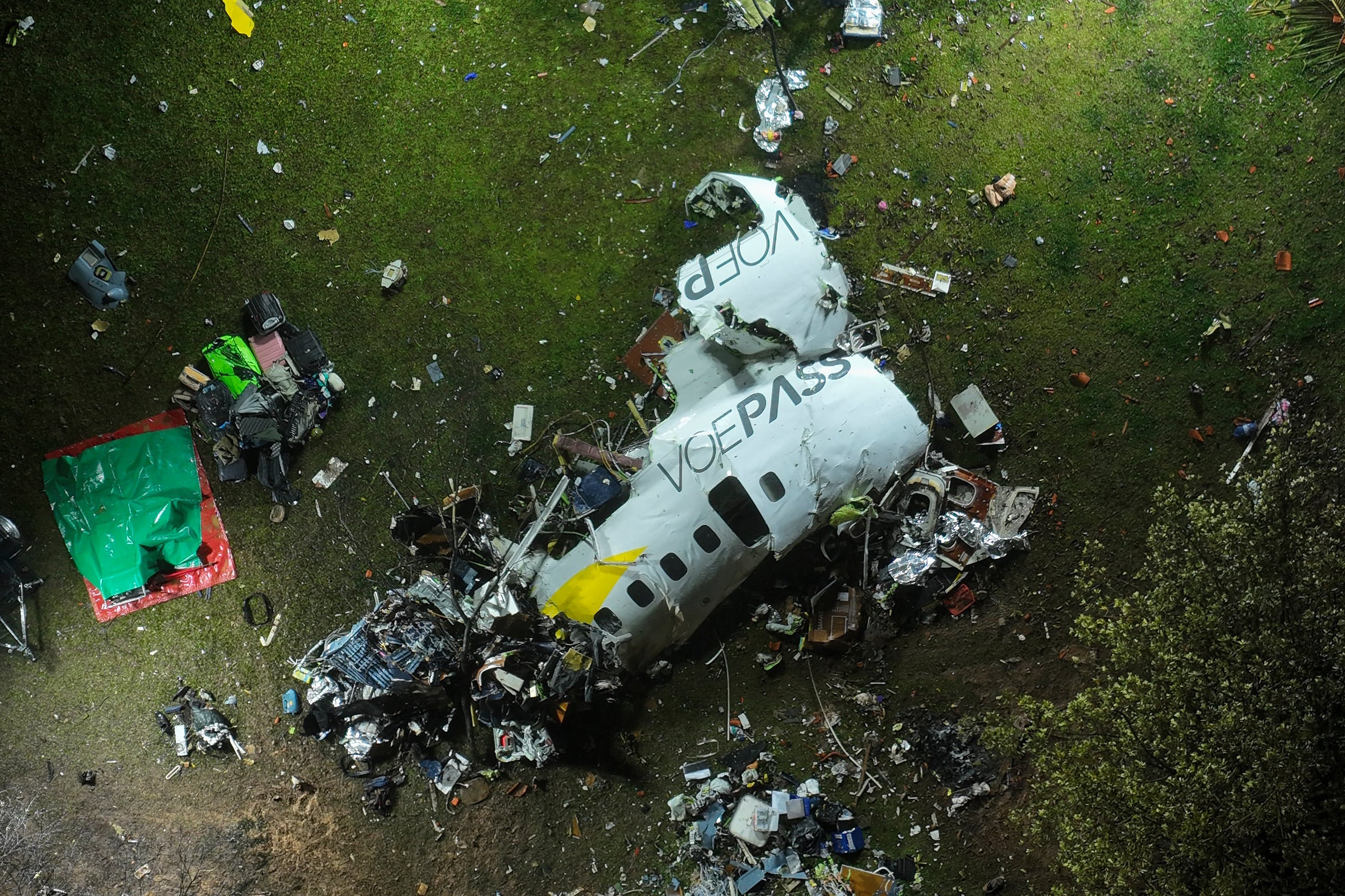Cockpit audio indicates problems with de-icing in last month's deadly plane crash, investigators say
Investigators say the pilots of a Brazilian passenger plane that crashed last month, killing all 62 people aboard, were failing to remove ice from the plane

Your support helps us to tell the story
From reproductive rights to climate change to Big Tech, The Independent is on the ground when the story is developing. Whether it's investigating the financials of Elon Musk's pro-Trump PAC or producing our latest documentary, 'The A Word', which shines a light on the American women fighting for reproductive rights, we know how important it is to parse out the facts from the messaging.
At such a critical moment in US history, we need reporters on the ground. Your donation allows us to keep sending journalists to speak to both sides of the story.
The Independent is trusted by Americans across the entire political spectrum. And unlike many other quality news outlets, we choose not to lock Americans out of our reporting and analysis with paywalls. We believe quality journalism should be available to everyone, paid for by those who can afford it.
Your support makes all the difference.The pilots of a Brazilian passenger plane that crashed last month, killing all 62 people aboard, reported failure in the system to remove ice from the plane, according to a preliminary report made public Friday by Brazilian authorities.
Investigators were careful to avoid saying this was the cause of the accident, and stress there is more work to be done. Still, their report lent further credence to aviation experts' main hypothesis: that the lift loss had been caused by ice formation on the plane's wings and failure of its de-icing system. Weather reports from the day of the accident predicted ice formation in the region where the plane went down.
Audio from the cockpit’s voice recorder included comments from pilots indicating there ice was accumulating and there was a failure in the de-icing system, said Paulo Fróes, an investigator in the the air force’s center for the investigation and prevention of air accidents, told reporters in Brasilia.
“There are still many doubts. This accident shouldn’t have happened, not in the conditions in which the plane was flying and was being operated. It had protection equipment,” Carlos Henrique Baldin, head of the center's investigation division, told reporters.
Operated by the airline Voepass, the flight departed Aug. 9 from the city of Cascavel, in Parana state, bound for Sao Paulo’s Guarulhos international airport. It crashed into the backyard of a home in a gated community in the city of Vinhedo, about 80 kilometers (50 miles) northwest of the metropolis of Sao Paulo.
Footage of the ATR 72 twin-engine turboprop plunging while in a flat spin horrified people across Brazil.